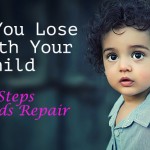 Jane Sandwood
Jane Sandwood
Teacher | Blogger | Mom
Nothing can be more damaging to a person’s self-esteem than being in an emotionally abusive relationship. Being subjected to emotional abuse can be even more devastating for children, as this form of maltreatment is sadly very common but rarely understood in today’s society.
 According to experts, there are six types of emotional child abuse, and these are exploitation, corruption, rejection, terrorizing, ignoring, and isolation. Some parents subject their child unknowingly to one or more of these forms of abuse, and they can have negative effects on a child’s psyche.
According to experts, there are six types of emotional child abuse, and these are exploitation, corruption, rejection, terrorizing, ignoring, and isolation. Some parents subject their child unknowingly to one or more of these forms of abuse, and they can have negative effects on a child’s psyche.
Ignoring or being psychologically unavailable to a child may be one of the most common ways that emotional abuse manifests in some homes all over the country. When a child is repeatedly ignored, he or she starts to see him or herself as undeserving of love and attention. Children who are often ignored may choose to express their feelings by being angry or hostile towards other adults or their peers. Moreover, one study confirms that psychological abuse imparts lasting damage that is equal to or exceeding the long-term effects of physical abuse.
Another way that parents may inadvertently damage their child psychologically is through isolation, which is cutting the child off from normal social relationships. To prevent the occurrence of these types of abuse in your own home, take note of the following tips.
Give your child the attention that he or she needs
When your child runs to you to show you a toy or a drawing, take the time to praise your child and acknowledge his or her presence. Being dismissive or curt to your child, or telling him to go away because you’re busy can have a negative emotional impact. This doesn’t mean that you have to stop talking to your boss or your clients on the phone when your child asks for your attention, but it’s important to let your child know that you’re there if he or she needs you.
Avoid saying hurtful things
Parents may say things that they don’t mean when angry or frustrated. But statements such as “I wish you’d never been born” or “Why can’t you be more like your brother/sister?” can damage a child’s sense of self. If you’re angry, give yourself a time out and take a walk around the block, or just take a few minutes to breathe and relax.
Let your child make friends
Some parents can be overly protective of their little ones and may keep their children from making friends. Keep in mind that friendship is an important part of a child’s life, and it’s incredibly precious because friends are some of the few things that kids choose for themselves. Encourage your child to play with kids their own age, or take them to places such as the park where they can meet potential friends.
These are just a few simple ways to prevent the most common types of emotional abuse from occurring in your own home. To help your child thrive, be consistent, listen to their concerns, have lots of patience, and be mindful of the things that you say and do in their presence. Most of all, express your love for your little one. Nothing is more reassuring for a child than to know that he or she is loved by the people who matter most to him or her.
 About Jane Sandwood
About Jane Sandwood
Jane always wanted to be a teacher as a child, and after graduating college went straight into primary education where she worked for a decade before taking time off to start her own family. She now campaigns against child abuse and domestic violence while working as a freelance writer and editor.
View all posts by Jane Sandwood here.
Save
Save






5 Comments on “How To Prevent Emotional Child Abuse in Your Home”
There was much emotional abuse in my house growing up. I suffer from low self esteem among other things. I tried very hard to be a better parent than my parents were and I think I did pretty good. Sad that this still goes on but good article!
We are sorry to hear that you had to deal with emotional abuse as child, but thank you for sharing Marilyn.
I grew up in a home where there was no emotional caring and now it effects my ability to show affection to those I love. I have explained to my son and hubby that I do not know how to show affection and feel very strange and a bit uncomfortable when others show affection now. I also did not have many friends because of it.
Thank you for sharing! Everyone shows affection in their own way and it sounds like your family understands.
This article is a real eye opener,thinking back i may have done at least one of those myself,that’s shocking